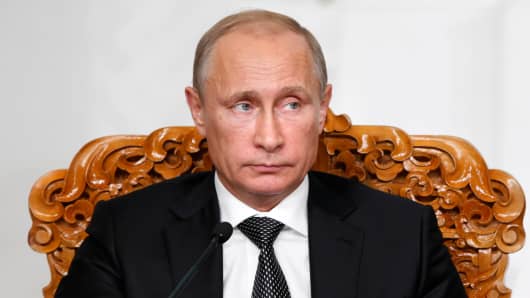 Climate change finally made it onto the closing G20 agenda
Climate change finally made it onto the closing G20 agenda
The G20 summit of world leaders has concluded with a communique, a fancy way of describing a joint statement, that has both delivered more, but also somewhat less, than expected.
Where they've delivered more is by putting issues such as climate change in the message from world leaders. Those weren't on the formal agenda as the host, Australian PM Tony Abbott, had nixed climate change, for one.
But, after US President Obama mentioned the urgency of dealing with climate change at a speech in Brisbane before the summit, it's unsurprising that it was discussed after all.
Ebola is also in the final statement.
But, where they have delivered less is with respect to concrete commitments on those issues.
For instance, the gist of the G20 statement on climate and Ebola is that they are concerned, and support effective action - without committing money or quantitative targets. Maybe that's too much to expect given that these originally weren't on the agenda.
Fighting tax evasion was on the agenda, and the G20 agreed to automatically share tax information, but I've already heard criticism from Transparency International and others that it doesn't go far enough because the information won't be in the public domain.
Going for growth
Of course, economic growth was top of the agenda, and is, as expected, the main focus of the G20 statement.
World leaders reaffirmed their goal of lifting the GDP of G20 economies - which represent 85% of the world's economy - by an additional 2% within four years, by 2018. It's equivalent to adding $2 trillion to global output, and they say that will create millions of jobs.
How they can achieve that, of course, is the big question.
What is the point of the G20 summit? In 90 seconds
The statement says that they'll deliver jobs through increasing "investment, trade and competition".
Each country will have their own plans, but the mechanisms outlined include getting another 100 million women into the workforce, increasing trade, and setting up a Global Infrastructure Hub.
What is notable is a focus on youth unemployment, with details to come next year. They also emphasised a commitment to poverty eradication and reducing inequality, which are certainly important.
Who's paying is, of course, key.
My understanding is that private businesses are being targeted for investment funds in infrastructure, for instance. We'll see more detail soon enough when individual countries work through their country plans in the coming months.
Jobless recovery
Raising global growth by 2% has been an aim of the G20 all year, and in prior years in various forms, yet the eurozone economy is teetering and emerging markets such as China and Brazil have been slowing. So, another statement may ring a bit hollow.
On the other hand, it's unclear what co-ordinated action could be taken since it's not 2008/09 where governments and central banks were jointly acting to save the global financial system.
I'm told that countries will monitor each other's actions to ensure that there's no negative impact on others. That may be what's realistic, but also it is also unsatisfying to those who have been waiting for their governments to do more jointly to create jobs.
After all, how to address the so-called jobless recovery, where output has recovered but employment has not, is a key issue in a number of major economies. Perhaps when the G20's employment working group reports back in 2015, there will be more detail.
However, if it takes until November in 2015 at the G20 in Turkey to see specific policies to address the jobless recovery that has been with us for more than six years, taxpayers may begin to balk at paying for these big summits that promise much but tend to deliver somewhat less.







